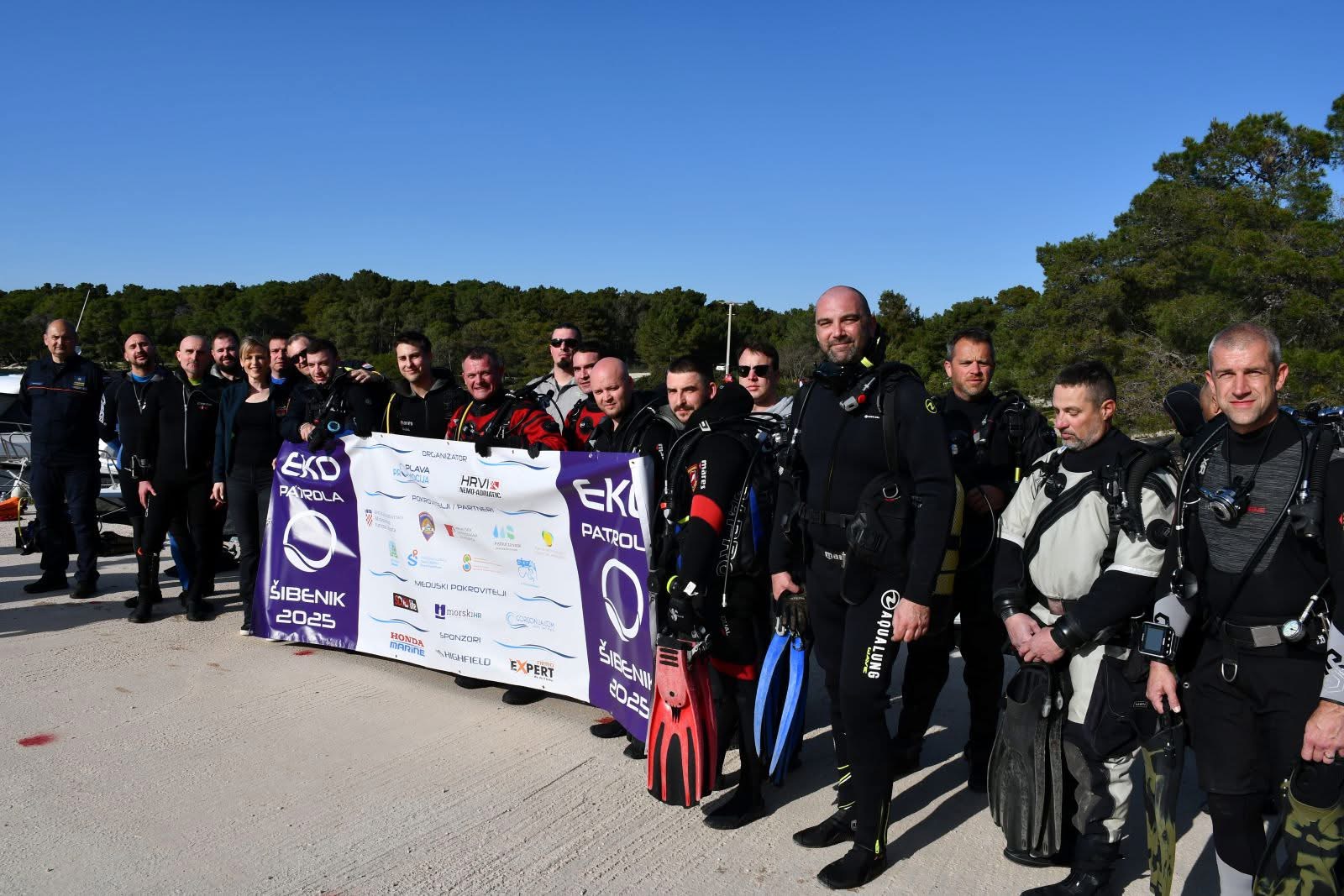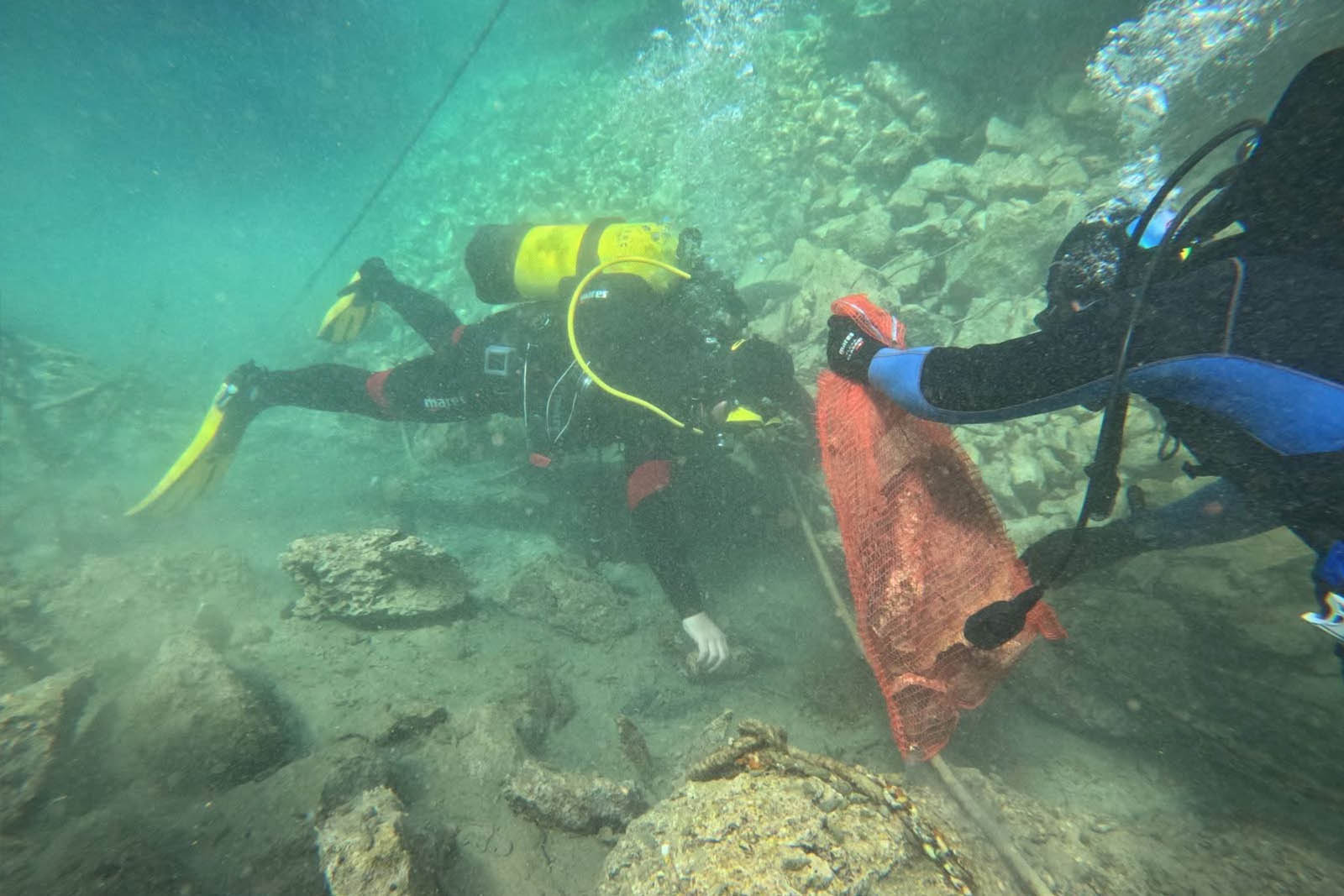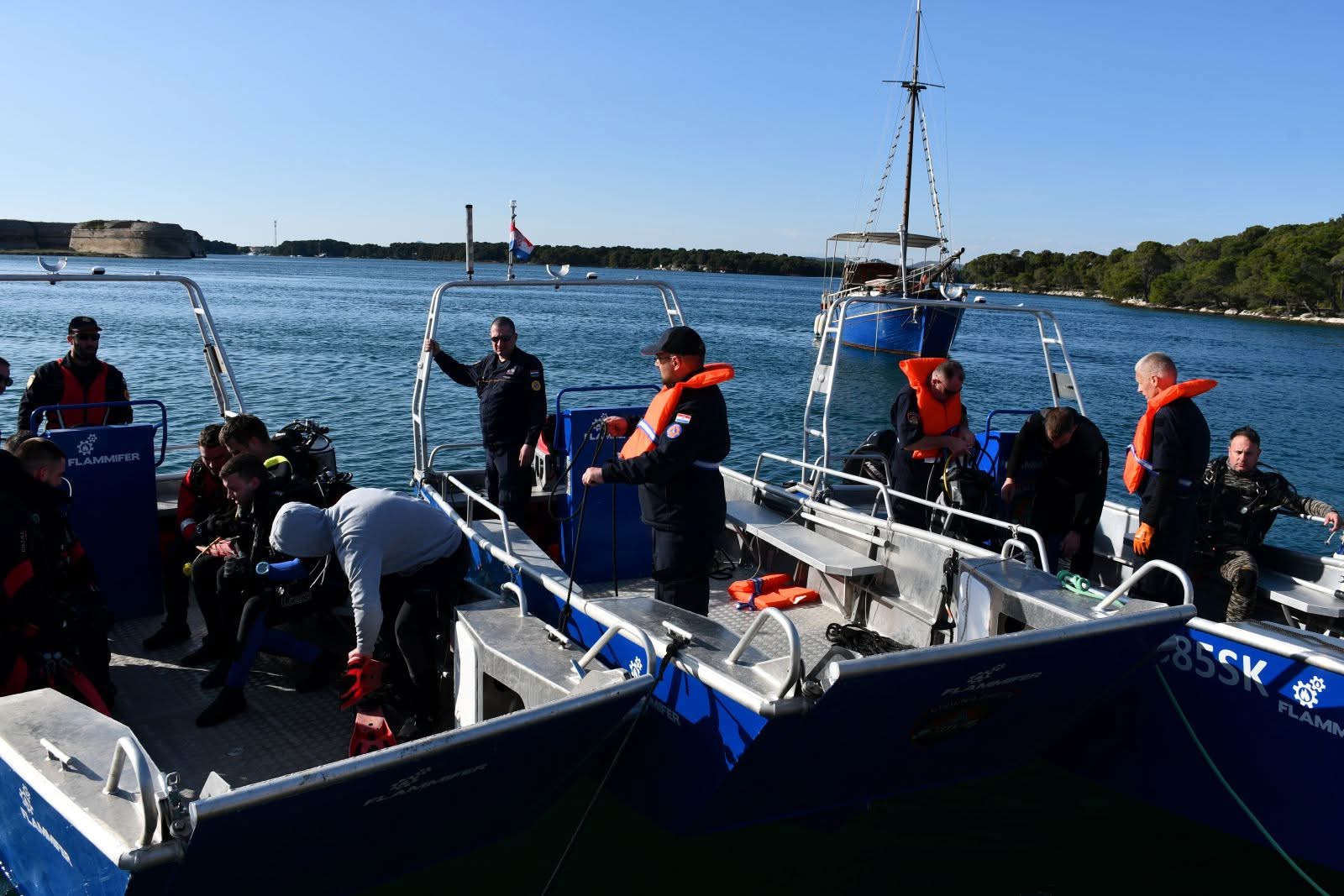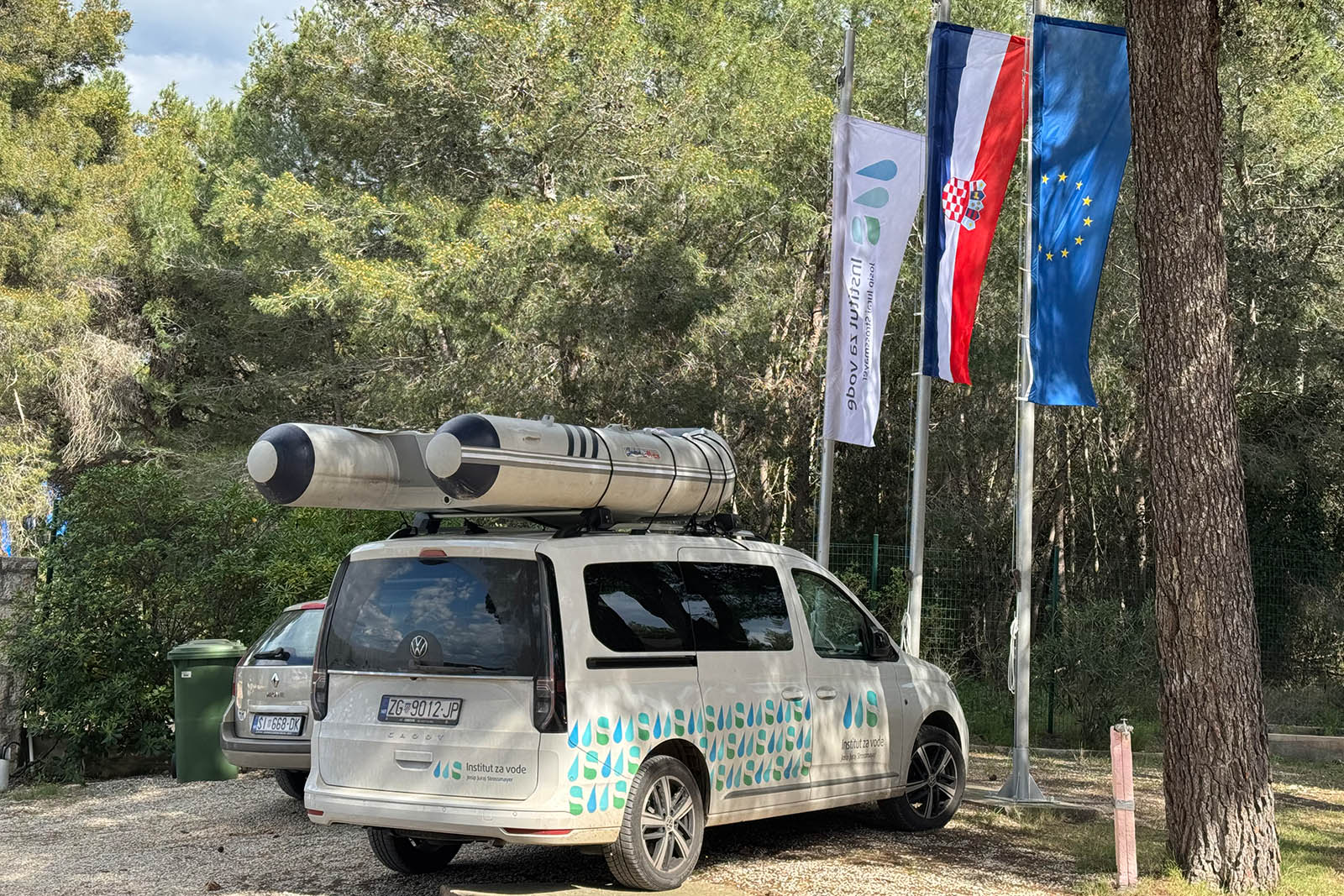Director of the Institute for an Ecological Action for Cleaning the Underwater


At the end of the 4th Croatian Diving Congress, an ecological action to clean the underwater world took place in front of the “Josip Juraj Strossmayer” Water Institute, more precisely the Water Testing Service in Šibenik, and the Institute’s Main Water Laboratory.
The event was attended by numerous Civil Defence divers, who were stationed in about twenty tents in the Institute’s yard as part of their regular activities. This year, the director of the Institute, Mario Šiljeg, actively participated in the action.
On this occasion, the director spoke to the media present and explained: “For Croatia, the Adriatic Sea is not only the basis of tourism, but also a source of food, ecological stability and ultimately national identity. We owe the richness of the marine ecosystem a whole range of benefits that have enabled us to develop as a nation and that we have inherited from the sea for centuries. Posidonia meadows, flowering marine plants, can store many times more carbon than forests, protect the coast from erosion and provide habitats for numerous species.
To preserve what we have and replenish the resources and resilience to the changes we thrive on, we are cleaning up visible marine debris today, but that’s just a drop in the ocean’s ocean of problems. The real threat we face is microplastics, which we can’t bring to the surface and whose particles end up in marine organisms and indirectly on our plates.”
Some of the pressures on the oceans can be tackled at the level of our own responsibility and by changing our daily habits, while others require good tools at a systemic level.
One of the measures at the systemic level is certainly the expansion and effectiveness of the Natura 2000 network of protected areas, which is crucial for the long-term health of the Adriatic, food security, resilience to climate change and the preservation of Croatia’s natural wealth, emphasised Director Šiljeg. As a positive example, he cited the increased protection of the Jabuka Basin, which has already led to visible improvements and a positive effect on the flourishing of biodiversity in the area. Another example, which can be traced back to the initiative of the local community, is the process of proclaiming a special marine protected area at Cape Stupišće on the island of Vis.


